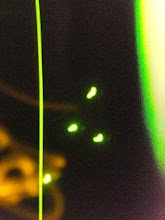
(
I wrote this recently for my university's political review and thought I'd throw it up here as well.)
---
While recent attempts by top Democrats to paint Rush Limbaugh as the new face of the Republican Party may seem a bit like kicking the GOP while it's already down, this method of attempting to damage parties by creating dangerous associations is actually a part of a mainstream, directed political strategy by no means limited to progressives. This practice of setting up a strawman for an entire political movement is dishonest at best, divergent and damaging at worst.
In the wake of Limbaugh's divisive February speech to the Conservative Political Action Conference (one he later termed his first "Address to the Nation"), Rush was seen as an easy target to trump up as the archetypical Republican; blustering, self-assured and unabashedly partisan, the man’s polarizing rhetoric served as a suitable strawman for the entire conservative movement.
In their previous criticisms of Sarah Palin (a controversial nominee to be sure, but also a sympathetic one), the Obama team had been seen as overly harsh, and progressives thereafter went after less vulnerable targets like Limbaugh. The numbers seemed to support the choice: The DNC polling company Democracy Corps found the venerable talk show host's popularity among voters under 40 to be a mere 11 percent, numbers far below that of even the Reverend Jeremiah Wright and William Ayers, both popular targets of the Right during the election and campaign kryptonite for Obama. Rush's audience is comparatively small and highly disproportional – fully 72 percent male according to Pew Research, a gender gap that amused the radio host, who jokingly suggested a "Female Summit" to discuss the issue. The conclusion is obvious: while Rush may claim a mandate to the neoconservative mantle, he commands an influence over but a small, selective portion of the population.
Most of the GOP/Rushbo associations were explicit: when asked who speaks for the Republican Party, Obama chief of Staff Rahm Emanuel referred to Rush as "the voice and the intellectual force and energy behind the Republican Party. . . which is why the Republicans pay such attention to him." When Rush famously wished failure on the new administration (a preference even most of Obama's opponents report not sharing), the Democratic Congressional Campaign Committee sent the tape to its members as part of a fund-raising campaign. Furthermore, when RNC Chairman Michael Steele joined in the criticism, calling Rush's discourse "incendiary" and "ugly," he was forced to apologize personally, giving further ammo to progressives who attempted to publicize what they saw as a close, highly subservient connection between the iconic figure and his party.
But does this strategy work? Similar connections can be made to the tactics of Bush-era conservatives during the 2004 presidential election, when Bush campaign advisor Mark McKinnon acknowledged having used a similar strategy by "making Michael Moore the face of the Democratic Party. . . That's why we gave him credentials to cover the 2004 convention and then turned the spotlight on him." Still, Moore later rejected the concept that his name was used as a pejorative. He insisted that American voters share his values and that Republican strategies had backfired, in effect turning him into an "accidental spokesman for the liberal, majority agenda." Nevertheless, Moore's films and often incendiary statements and politics remain a healthy source of controversy. Like Rush Limbaugh, he remains a larger-than-life figure, representing the extremes of his party rather than the more moderate values and politics of the average American.
In the end, Limbaugh and Moore are essentially cartoon characters - personalities whose constant addiction to controversy, often-questionable behavior (drug addiction on Limbaugh's part, shady editing techniques on Moore's) and radical politics imbue their beings with the sort of excess that makes them untouchable by those of their political stripe and unstomachable by all others. Many political sectarians rely nearly completely on these divisive figures to attack the opposing ideology. A Rush Limbaugh, Michael Moore or DailyKos.com can often serve as a shortcut to depict the opposition as thoughtless partisans and sidestep legitimate political discourse. This sensationalistic behavior only serves to glamorize the horse race of politics over the priorities and issues our system and representatives ought to address.
Though political in-games and shifty strategies will always be a part of our political discourse, it seems disingenuous to resort to this type of infighting and partisan bickering when ideologies, not individuals, are on the table for debate. Though associating an opposing party purely with its most extreme of ideologues may strike a chord with the average American - most of whom have little in common with the ferocity or pettiness of these polarized ideologues - it’s a lousy way to win a long-term political victory. Building an ideology based on positions, not partisans, is the only way to ensure a healthy political discourse in America and guard against an increasing apathy of politics.


















